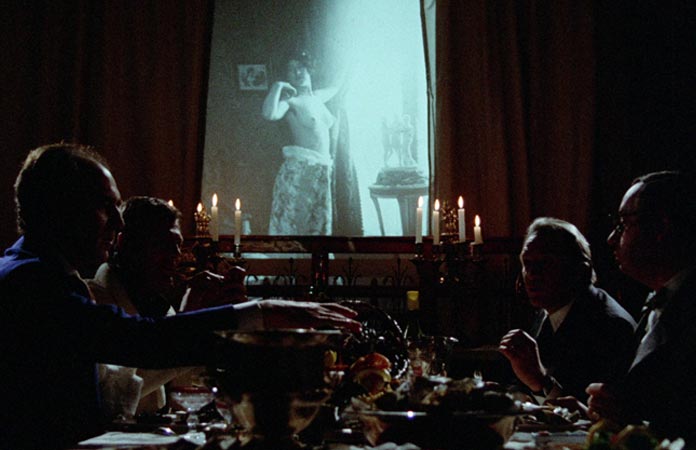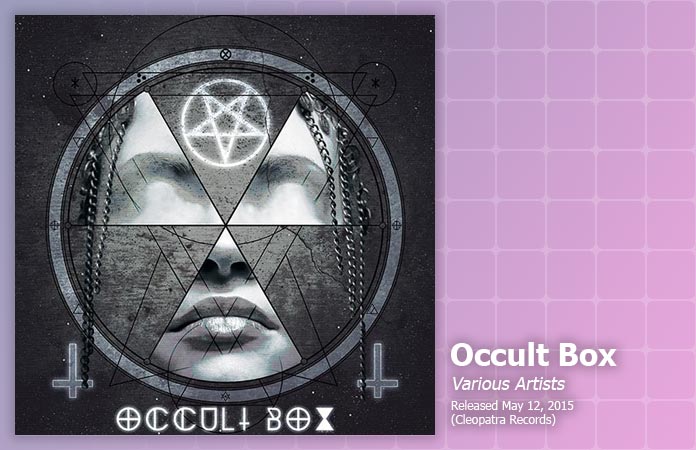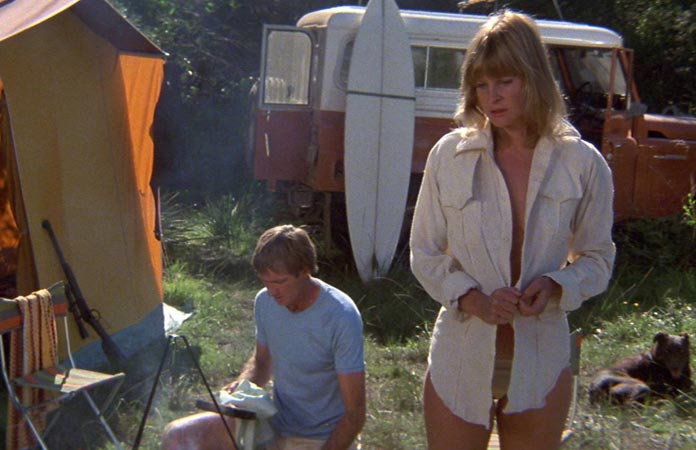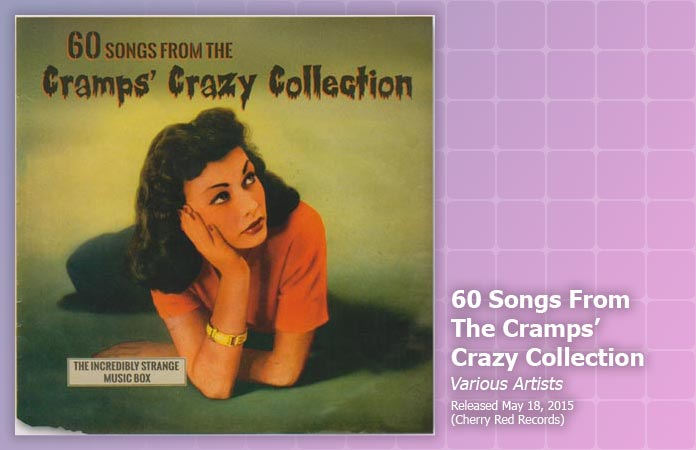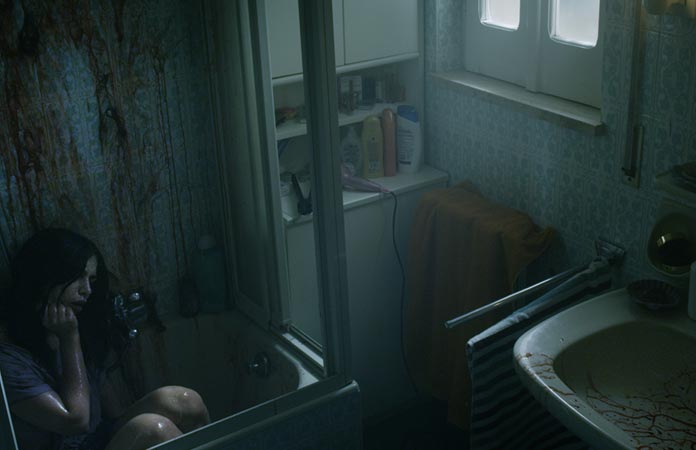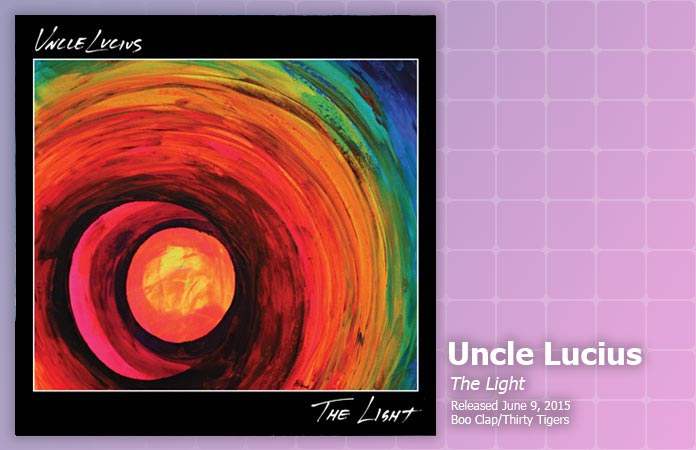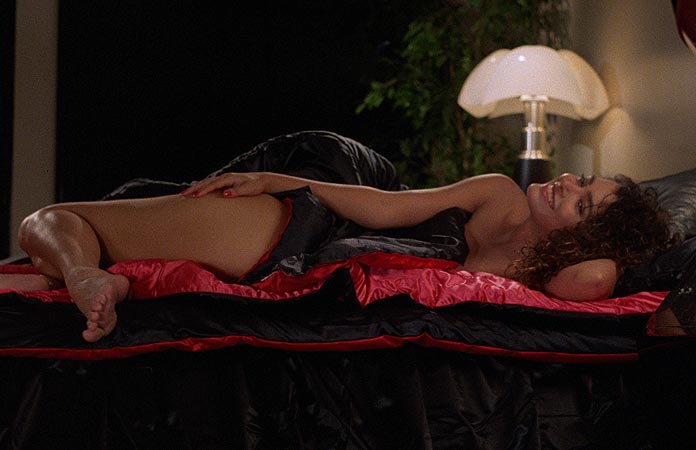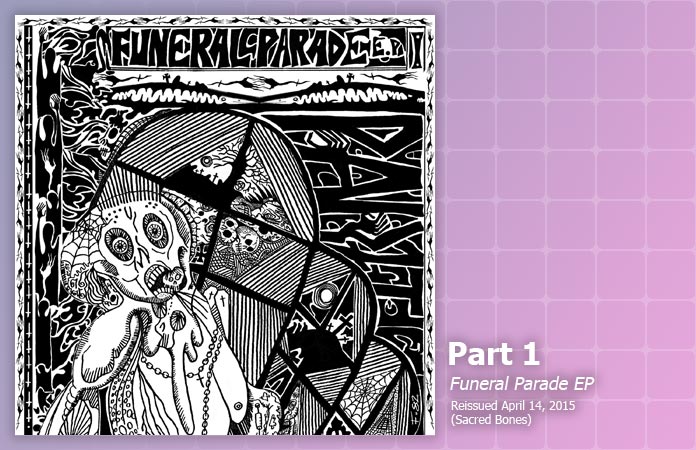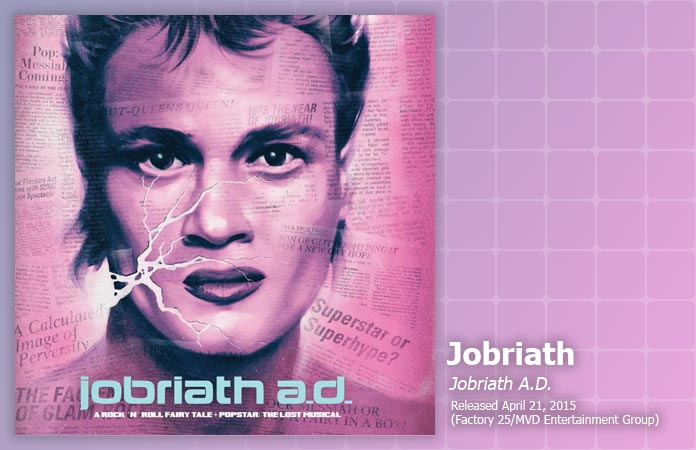Blu-Ray Review: La Grande Bouffe
Published on August 20th, 2015 in: Blu-Ray, Culture Shock, Current Faves, DVD, Movie Reviews, Movies, Reissues, Retrovirus, Reviews |Towards the beginning of La Grande Bouffe one of the characters states, “Gentlemen, we are not here to have a vulgar orgy.” It is a droll bit of dialogue eventually revealed to be alarmingly ironic.
Music Review, Various Artists, Occult Box
Published on June 26th, 2015 in: Culture Shock, Current Faves, Music, Music Reviews, Reviews |Pssst. Hey, kid. C’mere for a second.
Blu-Ray Review: Long Weekend
Published on June 19th, 2015 in: Blu-Ray, Culture Shock, Current Faves, DVD/Blu-Ray Reviews, Horror, Movie Reviews, Movies, Reissues, Retrovirus, Reviews |If we Americans have learned anything over the last 20 years, it’s that Australia is hell on earth. Spiders bigger than your face, jellyfish that can kill you from ten miles away, sharks, Yahoo Serious. . . it’s the kind of place we should really nuke from orbit. It’s the only way to be sure.
At its dark little heart, the 1978 Australian film Long Weekend is about hell, and the different ways that concept can manifest itself into reality.
Music Review: Various Artists, 60 Songs From The Cramps’ Crazy Collection
Published on June 19th, 2015 in: Culture Shock, Current Faves, Music, Music Reviews, Retrovirus, Reviews |The record collection of The Cramps’ Lux Interior and Poison Ivy was massive and eclectic, as well documented on the Internet, the truest of all informational sources. In 2013, Cherry Red Records released Loose Lips Might Sink Ships (review), a 26-track album of instrumentals from their collection, and now, a follow-up has arrived: 60 Songs From The Cramps’ Crazy Collection: The Incredibly Strange Music Box. It’s the kind of riff-filled, oddly charming, mish mash of things that one would expect and hope for. There’s exotica, rockabilly, novelty singles, and a curious preoccupation with voodoo and fancy words (“Ginchy” “Groovy” and “Limbo”!). It’s enormously fun.
Blu-Ray Review: Spring
Published on June 12th, 2015 in: Blu-Ray, Comedy, Culture Shock, Current Faves, DVD/Blu-Ray Reviews, Horror, Movie Reviews, Movies, Reviews |I detest romantic comedies. They are often decidedly unromantic and terribly unfunny. Throw drama into the mix and it’s even worse: concocted conflicts and clichéd characters. Horror comedies are a more palatable but often hit or miss. Combining all four genres seems like a bad idea. Somehow Spring manages to do that and still be terrific. It’s the best romantic comedy/drama horror movie you’ve seen yet.
Music Review: Uncle Lucius, The Light
Published on June 12th, 2015 in: Culture Shock, Current Faves, Music, Music Reviews, Reviews |Guitarist Mike Carpenter of Uncle Lucius calls his band “Southern rock for the thinking man” and that’s quite correct. There’s a rich vein of social consciousness running through The Light, with thought-provoking lyrics on each track. Lest that make you shy away from The Light, don’t; those lyrics are enveloped in some excellent tunes, played by a band that doesn’t shy away from kicking ass.
Blu-Ray Review: Da Sweet Blood Of Jesus
Published on May 29th, 2015 in: Blu-Ray, Culture Shock, Current Faves, DVD/Blu-Ray Reviews, Movie Reviews, Movies, Reviews |In 1972, African-American writer, director, and actor Bill Gunn was given free reign to make a film that would capitalize on the success of Blacula. The result was the bizarre yet beautiful Ganja & Hess, his rumination on addiction, religion, and African-American culture, which would thrill audiences at Cannes, only to be savaged by critics upon its eventual release. The producers re-edited and repackaged Ganja & Hess as Black Vampire and the film was mostly forgotten.
But Bill Gunn never forgot. In 1973 he wrote a scathing letter to the NY Times, which said, among other things, “Your newspapers and critics must realize that they are controlling black theater and film creativity with white criticism.” Sadly, Gunn died in 1989, after making only one more film, 1980’s Personal Problems.
Blu-Ray Review: Society
Published on May 22nd, 2015 in: Blu-Ray, Culture Shock, Current Faves, DVD/Blu-Ray Reviews, Horror, Movie Reviews, Movies, Reissues, Retrovirus, Reviews |Oh how we all get richer / Playing the rolling game
Only the poor get poorer / We feed off them all the same
—Society‘s version of the Eton Boating Song
How do you explain a movie like Brian Yuzna’s Society? It truly is one of those things you must experience for yourself. The 1989 film is an important chapter in the body horror/ero goru subgenre, but it’s also just plain weird.
Music Review: Part 1, Funeral Parade EP (Reissue)
Published on May 8th, 2015 in: Culture Shock, Current Faves, Music, Music Reviews, Reissues, Retrovirus, Reviews |Perhaps the only reason that hundreds of copies of Part 1’s 1982 EP Funeral Parade weren’t burned at Southern Baptist churches during the eighties is because there were only 300 of them pressed. Lord knows if I’d heard their vicious, anti-religious lyrics and angular, distorted music back then I would have been an instant fan. Now we can all rejoice because Sacred Bones has reissued a remastered version of Funeral Parade in a deluxe gatefold sleeve. The UK band also reformed in 2013 and did a brief tour of North America for the first time ever this past April.
DVD and Music Review: Jobriath A.D.
Published on May 8th, 2015 in: Culture Shock, Current Faves, Documentaries, DVD, DVD/Blu-Ray Reviews, Movie Reviews, Movies, Music, Music Reviews, Retrovirus, Reviews |By Hanna
Jobriath A.D. tells the story of singer and would-be glam rock star Jobriath’s career and personal life. It focuses on the period when he was professionally active between 1968 and his death in 1983. His story is told nearly entirely from interviews with people who were involved in his life and career at the time or people who were influenced professionally by his work. There is some narration (by Henry Rollins, no less) to tie parts of the interviews together, and a series of animations provide visual interest and make up for the fact that there exists very little actual footage of Jobriath.
